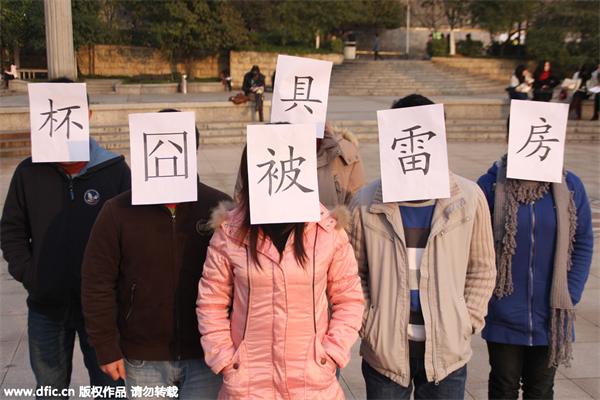 |
|
Chiense netizens grant some Chinese characters new meanings. [Photo/IC] |
On Tuesday, People's Daily posted a report on its website about the use of vulgar online language, listing and analyzing a number of such expressions. The report says netizens invent these new words, phrases or puns, which share the same pronunciation with some insulting expressions and yet consist of different characters, to express their anger and discontent about unfairness. That some celebrities use these expressions on the net makes them popular with their fans. Comments:
To clean up the online language, the authorities, schools and parents should first of all educate young people not to use such vulgar expressions, and then cultivate netizens' awareness of boycotting the dirty expressions automatically.
Peng Bo, deputy head of the Cyberspace Administration of China, June 2
Respecting freedom of expression does not mean recklessly indulging in vulgar talk. Exercising the right to voice an opinion does not mean people can say whatever they want. Cyberspace is a public space not a private place.
People.com.cn, June 3.
These vulgar expressions are common in some students' postings and comments on the Internet. It is easy to ban smoking at school, but it is very difficult to prohibit them from using improper language.
Tian Min, deputy Party chief of Beijing No 12 Middle School, June 3
There should be outlets or channels for public anger and malcontents, which would eliminate the soil in which the vulgar online language flourishes.
New Express Daily,June 3
The language environment on the Internet is a key factor in cultivating law-abiding citizens. Many netizens are young people. Encouraging them to use proper words and expressions will benefit the future of the nation.
Cao Yaxin, deputy chairwoman of the Chinese Culture Institute of Internet Communication, June 2.